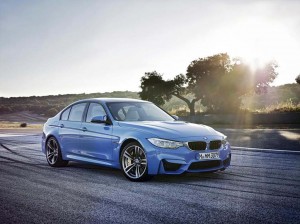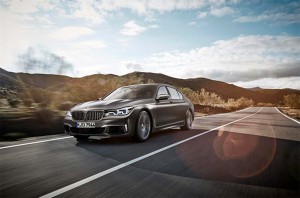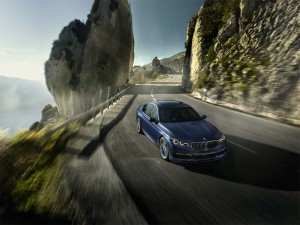As the public days open at this year’s New York International Auto Show, visitors to the BMW stand will get a look at two new, higher-performance versions of the maker’s big 7-Series sedan.
The Alpina B7 is actually produced by a small German partner that has long provided low-volume spin-offs of BMW products, while the M760i is made in-house by BMW. They join an expanding line-up of higher-performance models from the Bavarian maker, including the M3 and M5.
But those familiar with the sometimes arcane nomenclature used by the Bavarian automaker will notice that these two new models still leave a gap in the line-up. There is no actual BMW M7.
That has long been off-limits within a company that has, in recent years, expanded the M line to cover virtually every other model in its line-up. But, several senior officials have told TheDetroitBureau.com, that last taboo is about to fall.
An M7 “is clearly in our sights,” said Ian Robertson, the BMW board member overseeing global sales, during a private media reception in New York. He confirmed and expanded upon details provided by other senior executives within the company who had asked not to be identified by name.
But don’t rush to the nearest BMW showroom to place an order, Robertson cautioning the long-awaited M7 won’t appear until the next complete makeover of the 7-Series line-up. And considering it has been barely a year since the current full-size luxury sedan was launched, that is a way’s off. Though he and others were hazy about timing, the likely debut of an M7 won’t come before about 2021 or 2022, at the earliest.
(BMW Vision Next 100 offers look at century to come. For more, Click Here.)
BMW has long been reluctant to introduce such a model because the original M concept was intended to focus on products like the compact 3-Series or the mid-range 5-Series, vehicles that were, by definition, smaller, tauter and more nimble. They also targeted buyers who were more likely to want the maximum performance possible.
But in recent years, luxury buyers of all sorts have shown a predilection for performance, something rival Mercedes-Benz has taken advantage of with its big S63 and S65 versions of the S-Class line.
It also helps that the latest version of the BMW 7-Series has shown that, despite its size, it can deliver remarkably solid handling and handle lots of power, the Alpina B7, for example, making 600 horsepower and 590 pound-feet of torque. The M760i makes exactly the same numbers though, Robertson stressed, each model’s actual behavior on the road is markedly different.
(First drive: BMW 640i xDrive Gran Coupe. Click Here for the review.)
While the M760i comes close, it is not a true M7. In the arcana of BMW products, only those with a single numeral fall into that category, those with three digits better thought of as “BMW light.”
The M760i is one of a growing number of mid-range performance models, noted board member Robertson, adding, “You’ll see more pre-Ms” in the near future as the maker’s M Performance subsidiary “now expands rapidly.”
The push is covering the full range of BMW products, including its growing family of Sport Activity Vehicles, with only a few exceptions. There are no plans for an M version of the little i3 battery-electric vehicle or the plug-in sports car, the i8, though the latter already is among the quicker models BMW builds.

The current M3, the 4th-generation pocket supercar, lived up to its billing during a recent test drive.
But, going forward, insiders revealed, electrification could be part of the M strategy. Last August, for example, TheDetroitBureau.com reported that BMW is planning to use a plug-based driveline when it introduces the next-generation M3 early in the next decade.
(For more on Mercedes future plans for AMG, Click Here for our exclusive report.)
Other performance makers, including Mercedes’ AMG, are studying similar moves that could allow them to achieve even greater levels of power while also reducing emissions and fuel consumption in an era of increasingly strict global regulations.


